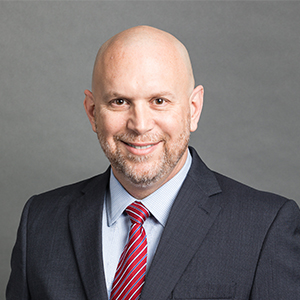
I recently read an article in Kaiser Health News concerning Walmart steering its employees with injuries to imaging centers based on accuracy and not price.
During the past few years, specialized hospitals throughout the country
misdiagnosed approximately 50% of the Walmart employees with back injuries. As a
result of these misdiagnoses, most of these employees underwent needless
surgeries for injuries instead of less expensive, non-surgical treatments.
According to Lisa Woods, Walmart's Senior Director of Benefits Design,
the misdiagnosis were from by a high rate of errors in MRI and CT scan images.
What was the error rate? Academic researchers have found that in a typical
radiology practice, the average error rate was 3-5%. But in Walmart's case, they
found almost a 30% error rate in the MRI and CT scans of its employees.
According to Dr. Vijay Rao, chairwoman of radiology at the Thomas Jefferson
University Hospital in Philadelphia, the leading cause for these errors is that
the radiologist is only spending seconds reading an image. "It's just a lot of
data that crosses your eye, and there is human fatigue, interruptions, and
errors are bound to happen," she said *. Rao continued to state that the
other main reasons for imaging errors were that the technicians were not
positioning the patient correctly in the imaging machine or a radiologist not
having sufficient expertise or experience.
This misdiagnosis has also had
a financial impact on America's largest employer and its employees. The cost to
Walmart is both the increase of health benefit spending, but also the loss of
its employees within their stores and the domino effect of the decrease in
customer service. But more importantly, for all of us not named Sam Walton, is
the financial impact on the employee. According to the US National Library of
Medicine's website, Medline Plus, the average time for back surgery recovery
ranges from two weeks to four months, depending on the type of surgery. The
average Walmart full-time employee makes about $13.00 (part-time about $10.00)
per hour and in many cases are living a modest lifestyle. The loss of a month's
wages will have a significant impact on this employee and their
families.
Walmart's response to this scenario has been to hire Covera
Health, a healthcare analytics firm, to use its data to identify imaging centers
across the United States that will provide accurate interpretation of medical
imaging for all modalities. Covera samples patient data from imaging centers
across the United States and utilizes independent radiologists to ascertain the
facility's error rate. It then creates data models that include information on
the facility's equipment, physician experience, and the use of industry-accepted
patient protocols to assign a facility rating. "Our primary interest is
understanding which radiologist or radiology practices are achieving the highest
level of diagnostic accuracy for their patients," said Dan Elgort, Covera's
chief data science officer.*
The result is a list of 800
imaging centers throughout the United States that Walmart is recommending to its
employees. While the employees are not required to use one of these 800 centers,
they are incentivized to use one if a listed center is near them. Should an
employee opt to use an imaging facility not listed in the 800, they will pay
more of the shared health benefit cost.
Covera is continually evaluating
medical imaging centers and hopes to have almost double the amount of Walmart
"approved" imaging facilities by the end of 2019. This increase in "approved"
imaging centers will allow Walmart employees a more extensive range of centers
in which they can use for their medical imaging needs.
While this may
sound like the "Company Stores" of the mining industry of the '60s and '70s,
Walmart is the first major employer in the United States that is pushing its
employees to a preferred healthcare provider based on accuracy, rather than
price. I, like many of you (hopefully), are not fans of the Big Brother
mentality from George Orwell's Animal Farm, but in this case, Walmart is using
its size, influence, and dollars to protect its employee's livelihood.









 ©
- CMS Imaging, Inc. All Rights
Reserved
©
- CMS Imaging, Inc. All Rights
Reserved

Comments
Leave a Comment